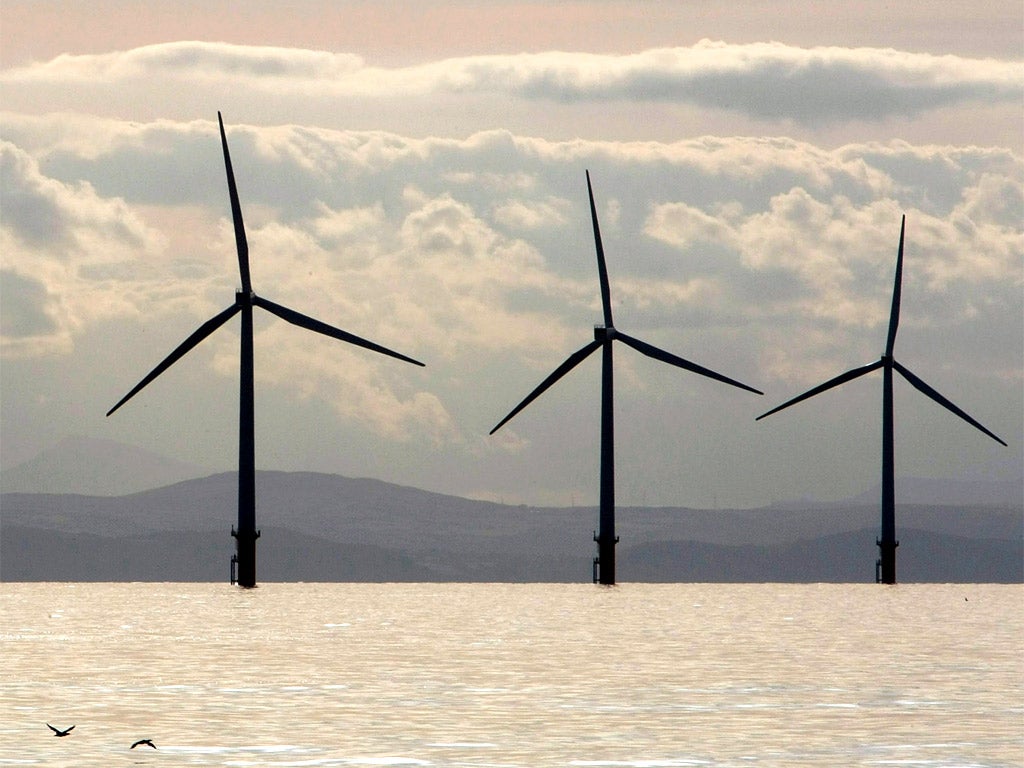EU admits it has no power to enforce its 'binding' 2030 renewable energy targets

The EU’s energy policy was thrown into disarray today after a senior official admitted that the bloc had no power to enforce the "binding" target it had just proposed, to generate 27 per cent of its power from renewable sources by 2030.
The proposal would effectively leave the EU without a renewable energy target after 2020, when the existing - enforceable - requirement to generate 20 per cent of its energy from renewable sources expires.
The 2030 renewable energy target was part of a package of measures proposed by the European Commission to tackle climate change yesterday. This included a 40 per cent reduction in greenhouse gas emissions across the zone by 2030, compared to 1990 levels, and a drive to cut energy consumption by using it more efficiently.
Although the 2030 renewable target appears stronger than the 2020 one because it requires a higher percentage, the 2020 target is much more effective because it is binding on every country in the EU. By contrast, the 2030 successor is only binding on the EU as a whole, meaning it cannot be enforced.
The EU plans to reach its 27 per cent target by inviting each country to table their own renewable energy target and seeing if it adds up to 27 per cent. If it doesn’t, countries will be called upon to submit a new offer, with the process continuing until the target has been divvied out and catered for.
But a senior EU official admitted yesterday that the “binding” target was unenforceable in its current form because the block has no power to force any country to pledge a certain level of renewable energy. Furthermore, it is not able to punish any country for failing to meet whatever pledge it does make.
This raises the prospect that beyond 2020 there will effectively be no meaningful renewable energy target.
Alex Wilks, campaign director at digital campaign group Avaaz, said: “As it stands the renewable energy target [EC] President Barroso announced allows countries to pass the buck and dodge accountability. Basically, it means the actual percentage achieved will be much lower than it could be.”
“Having an enforceable domestic renewables target for the last decade has made Europe the world leader in green jobs and energy,” Mr Wilks added.
Ed Davey, the Energy Secretary, confirmed that no country could be bound to generate a given amount of energy from renewable sources. He then put himself on a collision course with the EU saying he was “concerned about any renewables target” and that the amount of renewable energy Britain produced after 2020 would be determined by whether it was cheaper than other forms of low-carbon energy such as nuclear and carbon capture and storage (CCS). CCS is a fledgling technology that aims to capture emissions from coal and gas-fired power plants and bury them underground.
Mr Davey said that commitments to reducing emissions would require an increase in low-carbon generation, but that the market would determine how that as split between the various technologies.
As a result, Mr Davey suggested that the best he could offer the EU as it seeks to meet and account for the 27 per cent renewable energy target is a broad range of possibilities.
“The text makes it crystal clear that there will not be binding renewable targets on member states,” Mr Davey said, conceding that the “technology-neutral” approach to low-carbon generation this allowed him to take could result in less wind and solar power being built than would be the case under binding targets.
The broader proposal to reduce the EU’s emissions by 40 per cent – a target that doesn’t affect Britain because it is less ambitious than its existing legally-binding pledge – was generally welcomed.
However, many people said it did not go far enough, with Mr Davey pushing for 50 per cent.
Professor Kevin Anderson, professor of Energy and Climate Change, went even further, calling for an 80 per cent cut by 2030 if we are to have a chance of limiting global warming to 2C – the level after which the consequences become increasingly devastating.
“We have to take into account that the 40 per cent target is the death knell of 2C and probably much more aligned with 4C.”
The measures proposed will now be debated by member state governments, before they can be fully accepted. The European Council, made up of the heads of state or government of the EU member states, will discuss the proposal in March.
Join our commenting forum
Join thought-provoking conversations, follow other Independent readers and see their replies
Comments
Bookmark popover
Removed from bookmarks